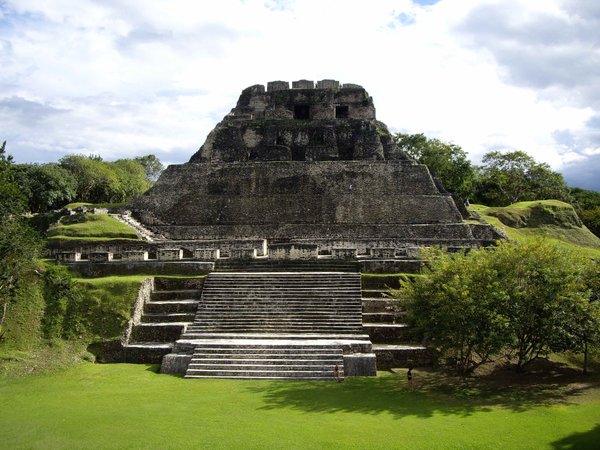Over the river and through the trees lie the Mayan ruins of Xunantunich. First unearthed in British Honduras at the turn of the last century, this ancient archeological site is one of the finest in the country that is now Belize. Although it’s less than 30 minutes from the capital city of Belmopan, most tourists come to Belize for the scuba diving and spend the majority of their time on the cayes off the northeastern coast of the country. Their loss is truly your gain.

The actual entrance to the park is a not-too-distant uphill walk from where the ferry docks. Although shaded by the jungle canopy, Central America’s heat and humidity makes the trek more difficult than most believe it will be.
Inside, you’re treated to the excavated – and in many cases reconstructed – Mayan structures. The stone buildings had little use other than for religious ceremony. The most noticeable, “El Castillo,” stretches 130 feet towards the heavens and is complete with chamber rooms and altars.
Xunantunich roughly translates to “maiden of the rock,” and it takes little imagination to invoke thoughts of young women being sacrificed to the insatiable gods of the culture.
Unlike the national parks and monuments of the U.S., there are no barriers or ropes cordoning off the sites. Although it dates back to 900 AD, you’re welcome – if not encouraged – to climb the steps and explore the ancient construction. However, stairs are steep, without handrails, and are not for the faint of heart.
The grounds are equally interesting, as ball fields the size of multiple football fields have been exhumed and manicured to walk or play on as you like. A museum explaining the history and dig is a must visit, and there’s also a gift shop to complete the tourist experience.
Author: Joe Tuborg | Source: San Diego Reader [November 16, 2011]